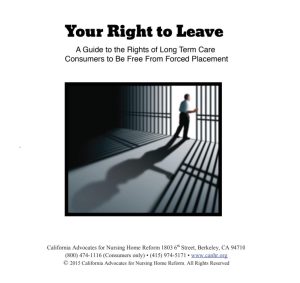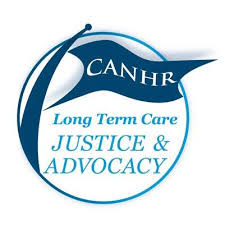 Is there any right more fundamental than the freedom to leave a place where you do not wish to stay? For nursing home residents in California, this right is often disregarded—sometimes in direct violation of the law. Fortunately, the California Advocates for Nursing Home Reform (CANHR) has recently updated its guide for long-term care residents who are being held against their will. This guide outlines the legal protections available and provides practical steps to challenge illegal restrictions on a resident’s right to leave.
Is there any right more fundamental than the freedom to leave a place where you do not wish to stay? For nursing home residents in California, this right is often disregarded—sometimes in direct violation of the law. Fortunately, the California Advocates for Nursing Home Reform (CANHR) has recently updated its guide for long-term care residents who are being held against their will. This guide outlines the legal protections available and provides practical steps to challenge illegal restrictions on a resident’s right to leave.
The Right to Move Freely
Imagine you live independently in an apartment, making your own choices and living life on your own terms. One day, your landlord locks you inside, installs alarms on your doors and windows, and tells you that you’re not allowed to leave. He insists that, for your own safety, you must remain inside indefinitely. When you call the police for help, they tell you that your situation is a “civil matter” and that you need a court order to be able to leave.
 Southern California Nursing Home Abuse Lawyer Blog
Southern California Nursing Home Abuse Lawyer Blog
















